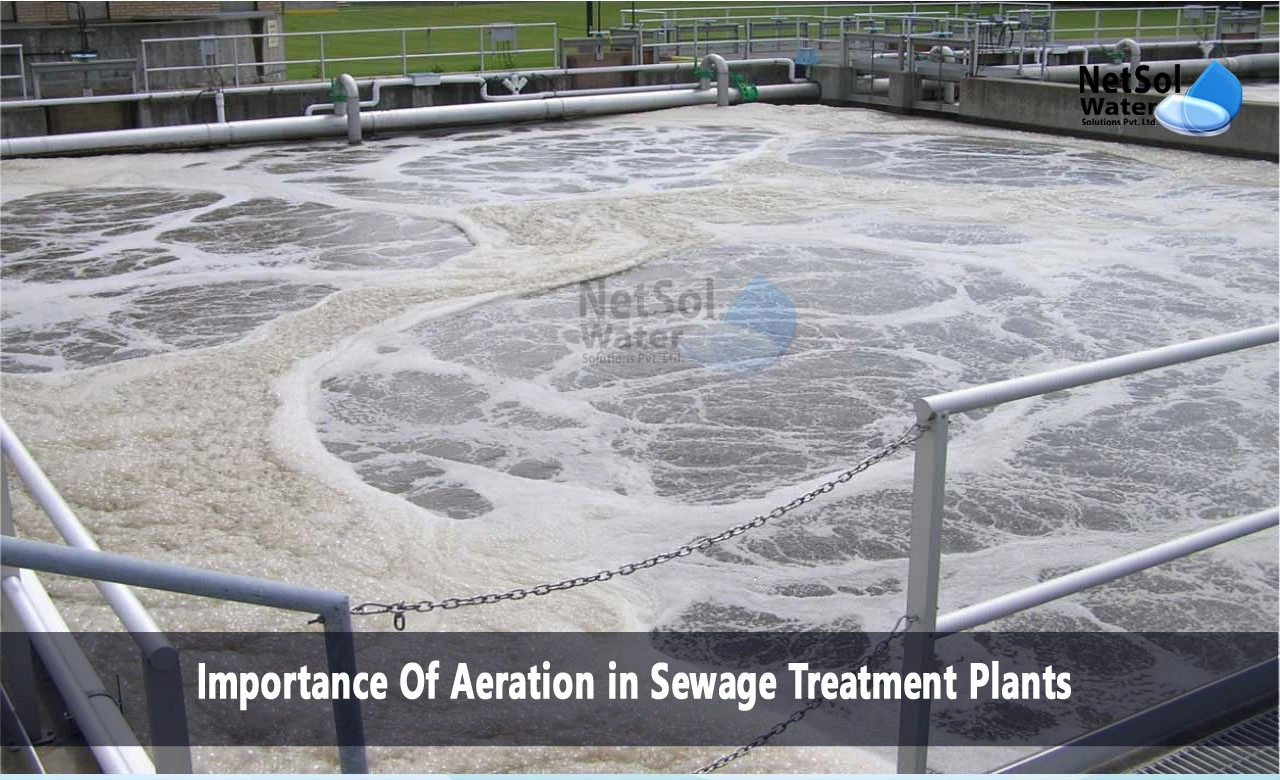What is the Importance Of Aeration in Sewage Treatment Plants?
Aeration plays a crucial role in the effective removal of organic matter and other pollutants from sewage. Aeration is the process of introducing air or oxygen into the wastewater, facilitating the growth of aerobic microorganisms that are responsible for breaking down and stabilizing the organic matter present in the wastewater. We will delves into the importance of aeration in sewage treatment plants, exploring its various aspects and examining the reasons why it is an indispensable component of the treatment process.
Understanding the Wastewater Treatment Process
Before understanding the significance of aeration, it is essential to understand the overall wastewater treatment process. Sewage treatment plants are designed to remove a wide range of pollutants from wastewater, including organic matter, nutrients, pathogens, and suspended solids. The treatment process typically involves several stages, such as preliminary treatment, primary treatment, secondary treatment, and sometimes tertiary treatment, depending on the desired level of treatment.
The Role of Aeration in Secondary Treatment
The secondary treatment stage is where aeration plays a pivotal role. This stage relies on biological processes to remove the remaining organic matter and nutrients from the wastewater after the primary treatment. Aeration is essential in the secondary treatment process for the following reasons:
1. Aerobic Microorganism Growth: Aeration provides the necessary oxygen for the growth and proliferation of aerobic microorganisms, such as bacteria and protozoa. These microorganisms consume and break down the organic matter present in the wastewater, converting it into carbon dioxide, water, and more microorganisms.
2. Activated Sludge Process: Many sewage treatment plants employ the activated sludge process, which is a biological treatment method that relies heavily on aeration. In this process, the wastewater is mixed with a concentrated population of microorganisms (activated sludge) in an aeration tank, where the aeration provides the oxygen required for the microorganisms to thrive and effectively degrade the organic matter.
3. Nitrification and Denitrification: Aeration also plays a vital role in the removal of nitrogen compounds from the wastewater through the processes of nitrification and denitrification. Nitrification, which occurs under aerobic conditions, involves the conversion of ammonia to nitrites and then to nitrates by specific bacteria. Denitrification, on the other hand, takes place under anoxic (low oxygen) conditions and involves the conversion of nitrates to nitrogen gas by denitrifying bacteria.
Aeration Systems and Technologies
There are various aeration systems and technologies employed in sewage treatment plants to facilitate the aeration process effectively. Some common aeration systems include:
1. Diffused Aeration Systems: These systems introduce air or oxygen into the wastewater through the use of submerged diffusers or perforated pipes installed at the bottom of the aeration tank. The diffusers create fine bubbles that provide efficient oxygen transfer to the wastewater.
2. Surface Aeration Systems: In these systems, mechanical devices, such as surface aerators or brush aerators, agitate the surface of the wastewater, creating turbulence and allowing for the transfer of oxygen from the atmosphere into the wastewater.
3. Pure Oxygen Systems: In some cases, pure oxygen is introduced into the wastewater instead of air. This method can be more efficient and economical, especially in high-load conditions or when dealing with industrial wastewater with high organic content.
Energy Efficiency and Cost Considerations
Aeration is a highly energy-intensive process, often accounting for a significant portion of the overall operating costs in a sewage treatment plant. Optimizing the aeration system to achieve energy efficiency is crucial for reducing operational costs and minimizing the environmental impact associated with energy consumption.
Advancements in aeration technology, such as the use of high-efficiency blowers, fine-pore diffusers, and advanced control systems, have aimed to improve energy efficiency while maintaining effective aeration. Additionally, incorporating energy recovery systems and utilizing renewable energy sources can further contribute to reducing the energy footprint of aeration processes in sewage treatment plants.
Conclusion
Aeration is an indispensable component of sewage treatment plants, playing a vital role in the effective removal of organic matter and other pollutants from wastewater. It facilitates the growth and activity of aerobic microorganisms responsible for breaking down organic matter, and it enables crucial processes such as nitrification and denitrification for nutrient removal.
While aeration is energy-intensive, advancements in aeration technologies and energy-efficient practices have aimed to reduce the overall energy demand and associated costs. As environmental regulations become more stringent and the need for efficient wastewater treatment grows, the importance of aeration in sewage treatment plants will continue to be paramount.
Effective aeration not only ensures the proper treatment of wastewater but also contributes to the protection of public health and the preservation of aquatic ecosystems by preventing the discharge of untreated or insufficiently treated wastewater into natural water bodies. Ongoing research and innovation in aeration systems and processes will further enhance the efficiency, sustainability, and effectiveness of sewage treatment plants, ensuring a cleaner and healthier environment for generations to come.
Netsol Water is Greater Noida-based leading water & wastewater treatment plant manufacturer. We are industry's most demanding company based on client review and work quality. We are known as best commercial RO plant manufacturers, industrial RO plant manufacturer, sewage treatment plant manufacturer, Water Softener Plant Manufacturers and effluent treatment plant manufacturers. Apart from this 24x7 customer support is our USP. Call on +91-9650608473, or write us at enquiry@netsolwater.com for any support, inquiry or product-purchase related query.



